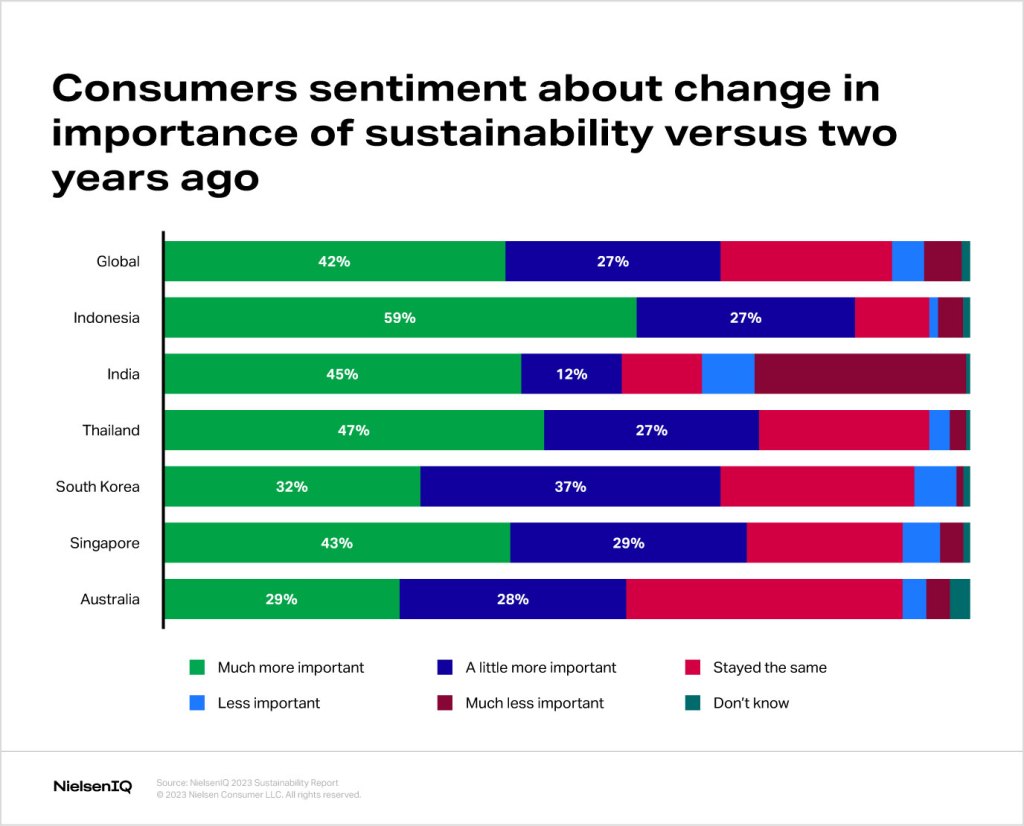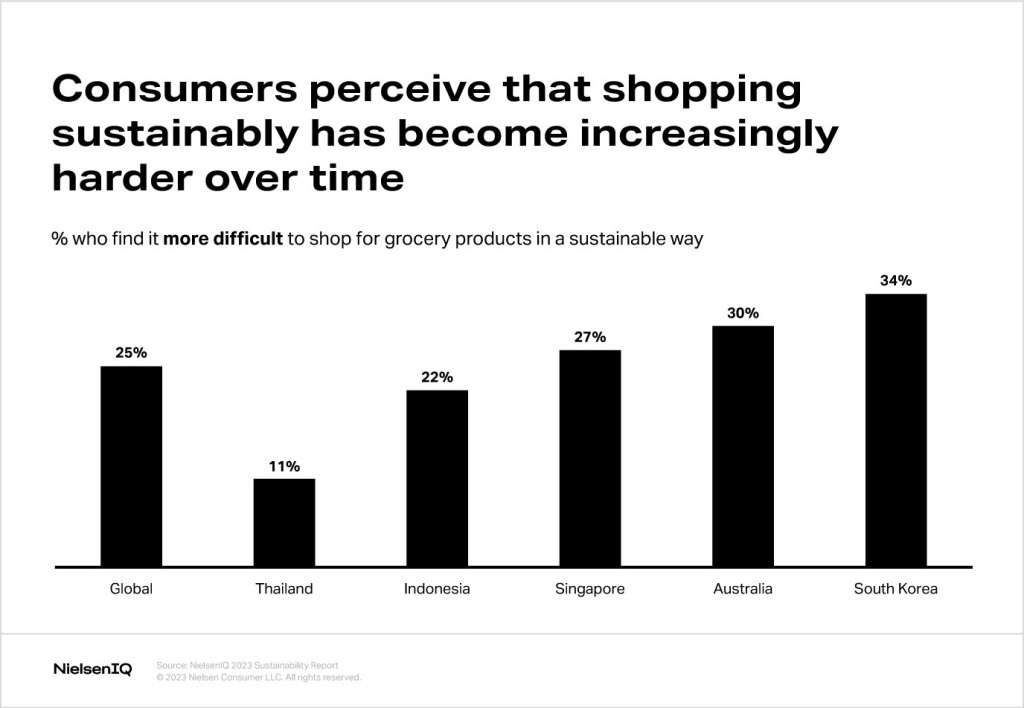Consumers feel the impact of climate change, seek out sustainability
NIQ’s latest sustainability study reports that 69% of global consumers feel sustainability is more important to them than it was two years ago, but cost, easy access, and a lack of clarity prevent them from adopting a more sustainable lifestyle.
Across the Asia Pacific region, Indonesia is the country with the highest number of consumers reporting sustainability is more important to them than two years ago (86%), followed by Thailand (74%), Singapore (72%), South Korea (69%). Australia bucks the trend in the region by recording the second-lowest global ranking (India recorded the lowest).

Concerns that personal health and/or safety is or could be impacted by climate change, as well as seeing more pollution and waste, are the top two reasons why Indonesians regard sustainability as highly important.
Justin Sargent, President, NIQ Asia Pacific said, “these results bring to life the way consumers across the Asia Pacific region are feeling towards the personal impact of extreme weather events and being more informed about sustainability — ultimately fuelling their demand for corporate action and accountability.”
“Positive consumer sentiment toward sustainability has been growing for more than a decade, but the impact of purchasing preferences has yet to inspire a green revolution within the retail industry,” added Sargent.
The study also reveals that consumers in Thailand and Indonesia are more likely to say it’s easy to shop for products in a sustainable way — 74% and 62% respectively, versus the global average of 50%. South Korea had the highest share of respondents reporting difficulty shopping for sustainable grocery products.

“Consumers around the region are more committed to sustainability, but many have found it difficult to make daily decisions that support true sustainability impacts. It needs to be easier for people to live and consume in a sustainable way that aligns with other daily pressures. Much of this responsibility to lead sustainability lies with retailers and manufacturers.”
Justin Sargent, President, NIQ Asia Pacific
Globally one in ten (11.2%) people say “environmentally friendly” and “sustainability” are the most important attributes they consider when choosing a brand.
The NIQ study revealed that consumers are taking some action in their lives to live more sustainability, with 1-in-2 taking their own shopping bags, avoiding waste, and minimizing electricity usage. Global consumers say that cost (41%), access (35%), and a lack of clarity (26%) stop them from adopting more sustainable lifestyles. There is a growing demand from consumers for corporate action and accountability given the overall awareness levels and critical stage of climate change globally.
“We are now at a tipping point, where companies who have been proactive and genuine about climate action will be at a massive advantage as industries scramble to meet requirements and mandated sustainable efforts,” says Regan Leggett, Foresight Leader, NIQ.
“To meet targets that become increasingly stringent over the next 10 years, we anticipate a great deal of scrambling from companies that now realize it’s crunch time. They will look for easy wins in the short-term, but the game changer is the requirement to report and validate their footprint and gain visibility of emissions and resource use across their whole value chain. This will require a long-term shift, and for many, a departure from how they currently operate,” added Leggett.
Quick view of global findings in the report
Looking across the globe, the analysis also found:
01
26% of global consumers find it difficult to find sustainable products on the shelf.
02
3 in 4 consumers (76%) want companies to take initiative to reduce their environmental footprint.
03
78% of global consumers say companies should be mandated to show full transparency of their supply chain so shoppers can make informed choices.
04
Of those consumers that said sustainability is more important to them, 54% said it was because it’s in the news all the time, 48% said that they were more informed about sustainability, 47% said that their health and safety have been or could be impacted by climate change and 1-in-3 say that they have been personally impacted by an extreme weather event.
05
48% of consumers say living sustainably is important for society and they try to make sustainable choices when they can.
06
79% of global respondents stated they were (quite/very) likely to choose a particular retailer if they offered a wider assortment of sustainable options in store.
07
77% say they would stop buying products from a company that had been found guilty of greenwashing, highlighting the importance of trust and transparency not only in communications but in the whole supply chain.
08
Scientists and environmental agencies are the most trusted parties for sustainability efforts, but brands can work with farmers and industry accreditation bodies to improve trust. Retailers can adjust their efforts, claims or endorsements around sustainability in order to leverage trust from consumers.
